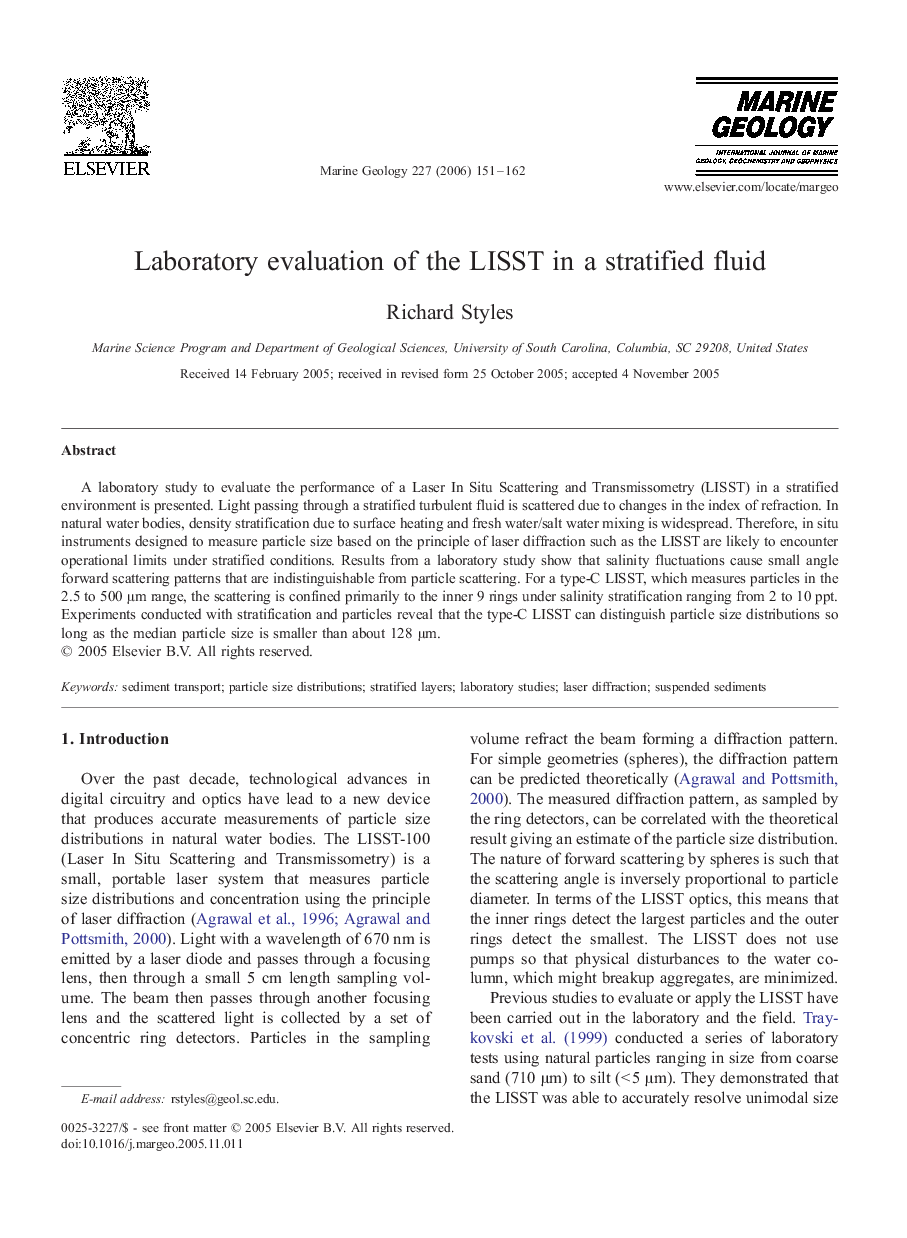| Article ID | Journal | Published Year | Pages | File Type |
|---|---|---|---|---|
| 4719855 | Marine Geology | 2006 | 12 Pages |
A laboratory study to evaluate the performance of a Laser In Situ Scattering and Transmissometry (LISST) in a stratified environment is presented. Light passing through a stratified turbulent fluid is scattered due to changes in the index of refraction. In natural water bodies, density stratification due to surface heating and fresh water/salt water mixing is widespread. Therefore, in situ instruments designed to measure particle size based on the principle of laser diffraction such as the LISST are likely to encounter operational limits under stratified conditions. Results from a laboratory study show that salinity fluctuations cause small angle forward scattering patterns that are indistinguishable from particle scattering. For a type-C LISST, which measures particles in the 2.5 to 500 μm range, the scattering is confined primarily to the inner 9 rings under salinity stratification ranging from 2 to 10 ppt. Experiments conducted with stratification and particles reveal that the type-C LISST can distinguish particle size distributions so long as the median particle size is smaller than about 128 μm.
